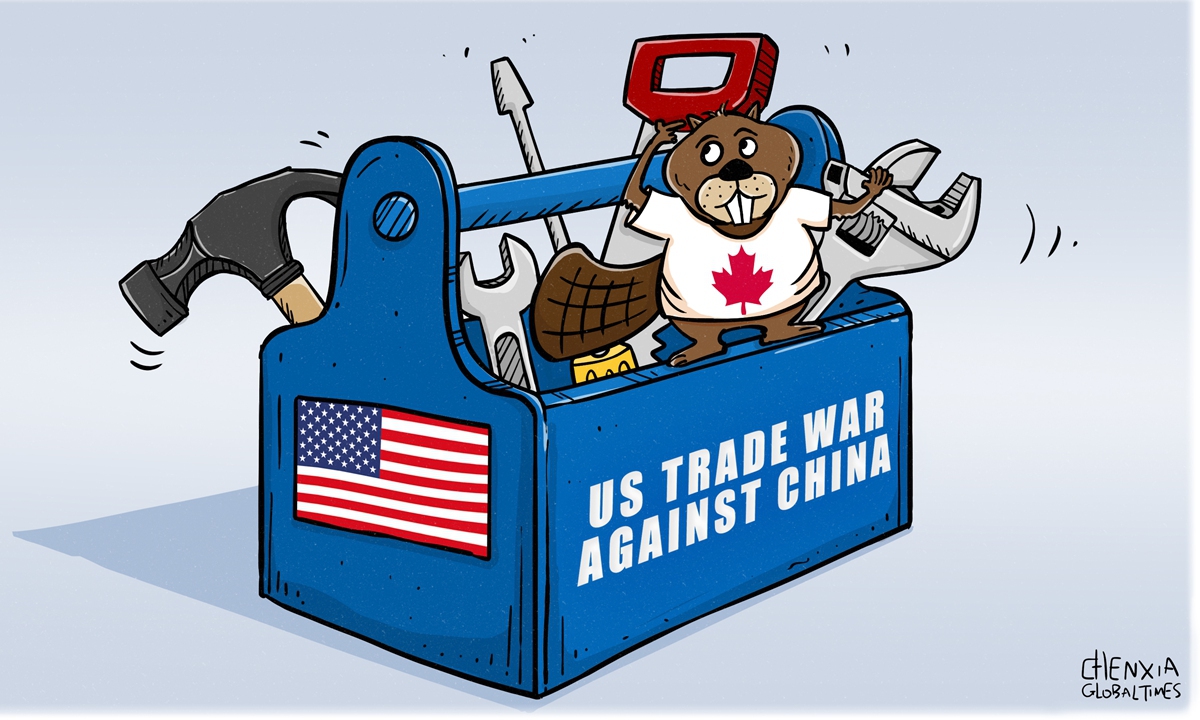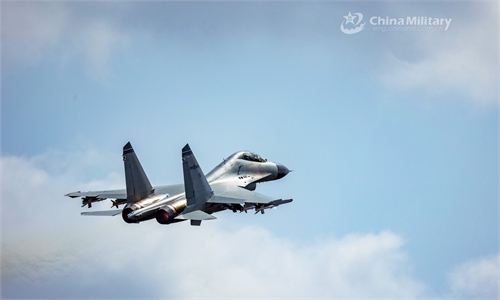GT Voice: Does Ottawa really know what it can get from Washington and what it will lose from China?

Illustration: Chen Xia/Global Times
Merchandise trade between China and Canada just recorded a situation rarely seen in decades. China in October imported more goods from Canada than it exported, data from China's General Administration of Customs showed on Tuesday. Whether there is new potential in bilateral trade deserves attention, despite tensions between the two countries.Chinese exports to Canada in yuan-denominated terms reached 24.13 billion yuan ($3.31 billion) in October, while imports from Canada stood at 25.3 billion yuan. In the first 10 months of this year, China's exports to Canada fell 12.5 percent year-on-year, with imports surging 19 percent year-on-year.
In US dollar terms, China exported $3.36 billion worth of merchandise to Canada in October, with imports at $3.53 billion.
While Canada has run a trade deficit with China for many years, the trade surplus in October may signal a broader trend of lower Canadian imports from China, which could be explained by several factors, such as its economic slowdown, trade policy changes and supply chain adjustments.
But amid the growing tensions in bilateral relations due to a series of incidents, especially against the backdrop of the unfriendly atmosphere of Canadian public opinion toward China, the outperformance of Canada's exports to China shows the resilience in China-Canada economic and trade cooperation.
This may be because of the rapid development of the Chinese economy and its expanding domestic consumption market, leading to rising demand for Canadian goods. More importantly, the resilience derives from the common needs of the two countries, and it is in the common interests of both sides.
At a time when the Canadian economy appears to have entered a technical recession, with a minor contraction estimated in the third quarter, it is not easy for Canadian businesses to maintain the growth of exports to the Chinese market of about 20 percent so far this year. This is also what Ottawa needs to recognize, and the momentum and potential of the positive side in the China-Canada relationship needs to be maintained and valued by both sides, so as to avoid falling victim to geopolitical tensions.
However, it is worrying to see that Ottawa has turned a blind eye to the economic and trade progress and is rather keen to ratchet up tensions with China again and again. A series of incidents led to the deterioration of relations between the two countries, which have no fundamental conflicts of interest or irreconcilable historical grievances. It is hard to imagine that the relationship between the two countries could become so difficult.
A major reason behind it is that Canada has mistakenly regarded the US strategy on China as its own in its foreign relations. The shadow of US influence could be seen in a series of incidents. For example, Canadian military aircraft recently traveled thousands of kilometers to cause trouble and provoke China on its doorstep, and afterwards, the Canadian side accused China of "unsafe interceptions."
But the question is: Is it necessary for Canada to serve America's interests to this extent? Most of what Ottawa is doing to China right now is saying it wants to stay away from its second-largest export market even though Chinese demand for Canadian goods has grown about 20 percent year-on-year so far this year, much outperforming its overall export market performance.
Does Ottawa really know what it can get from Washington and what it will lose? As things stand, Mexico is the biggest beneficiary of the US move to near-shore supply chains, but it apparently doesn't need to align its China policy with the US. So it is really baffling to see Ottawa follow the US as its own China strategy, only to see no benefits.
So why can't Ottawa choose an easier path for its own economy and trade instead of complicating the situation with unnecessary geopolitical risk?
In the past, some in Canada used to complain about the increase in the trade deficit with China. But now, whatever the reason, the emergence of a trade surplus shows the potential of Canadian exports to China, and what the two sides actually need to focus on to promote the further development of economic and trade relations and potential. These are the real priorities of bilateral relations and in Canada's best interests.



